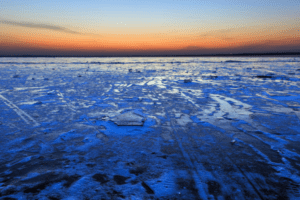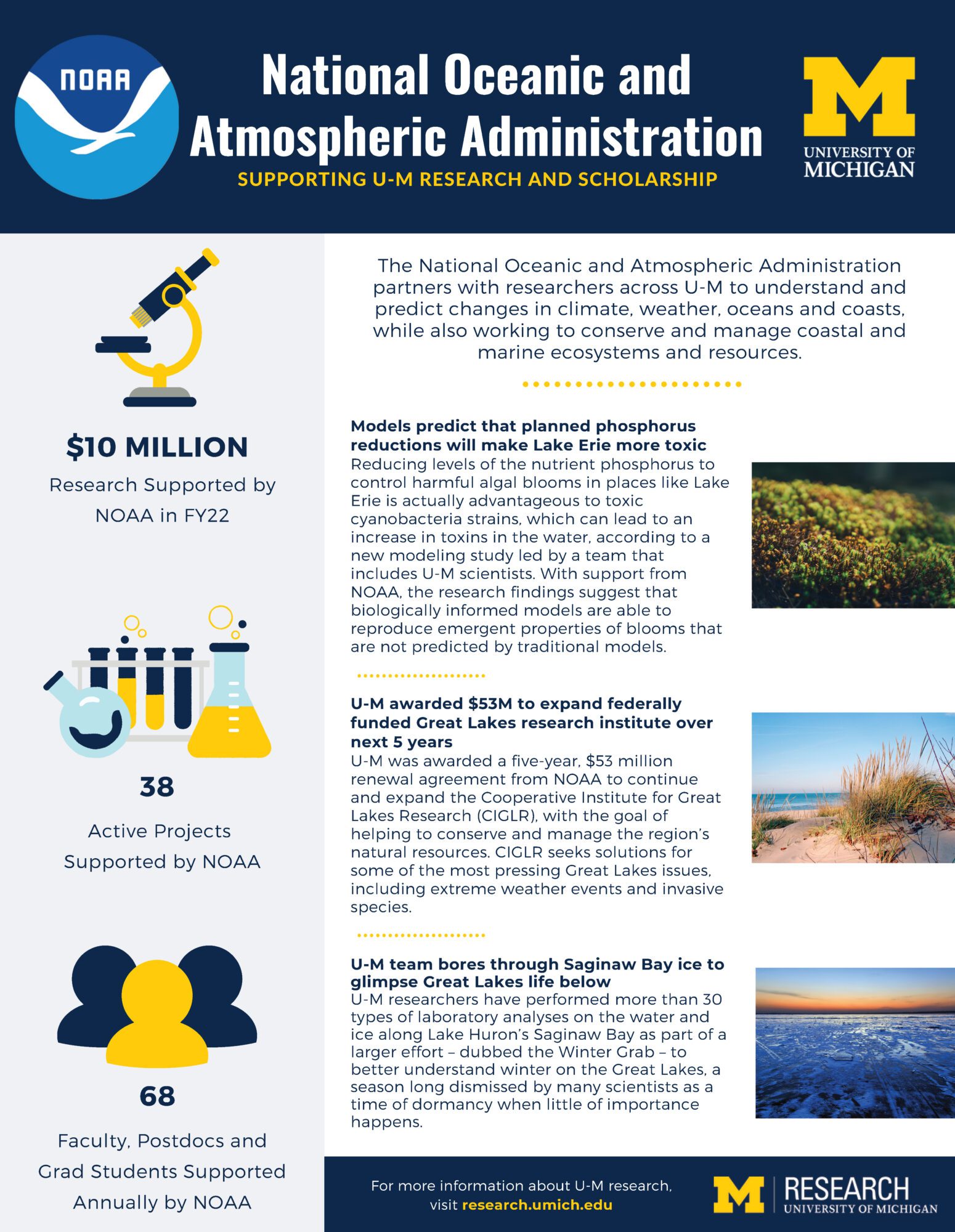National Oceanic and Atmospheric Administration
The National Oceanic and Atmospheric Administration partners with researchers across U-M to understand and predict changes in climate, weather, oceans and coasts, while also working to conserve and manage coastal and marine ecosystems and resources.


$10 MILLION
Research Supported by NOAA in FY22
38
Active Projects Supported by NOAA
68
Faculty, Postdocs and Grad Students Supported Annually by NOAA
Models predict that planned phosphorus reductions will make Lake Erie more toxic
 Reducing levels of the nutrient phosphorus to control harmful algal blooms in places like Lake Erie is actually advantageous to toxic cyanobacteria strains, which can lead to an increase in toxins in the water, according to a new modeling study led by a team that includes U-M scientists. With support from NOAA, the research findings suggest that biologically informed models are able to reproduce emergent properties of blooms that are not predicted by traditional models.
Reducing levels of the nutrient phosphorus to control harmful algal blooms in places like Lake Erie is actually advantageous to toxic cyanobacteria strains, which can lead to an increase in toxins in the water, according to a new modeling study led by a team that includes U-M scientists. With support from NOAA, the research findings suggest that biologically informed models are able to reproduce emergent properties of blooms that are not predicted by traditional models.
U-M awarded $53M to expand federally funded Great Lakes research institute over next 5 years
 U-M was awarded a five-year, $53 million renewal agreement from NOAA to continue and expand the Cooperative Institute for Great Lakes Research (CIGLR), with the goal of helping to conserve and manage the region’s natural resources. CIGLR seeks solutions for some of the most pressing Great Lakes issues, including extreme weather events and invasive species.
U-M was awarded a five-year, $53 million renewal agreement from NOAA to continue and expand the Cooperative Institute for Great Lakes Research (CIGLR), with the goal of helping to conserve and manage the region’s natural resources. CIGLR seeks solutions for some of the most pressing Great Lakes issues, including extreme weather events and invasive species.
U-M team bores through Saginaw Bay ice to glimpse Great Lakes life below
 U-M researchers have performed more than 30 types of laboratory analyses on the water and ice along Lake Huron’s Saginaw Bay as part of a larger effort – dubbed the Winter Grab – to better understand winter on the Great Lakes, a season long dismissed by many scientists as a time of dormancy when little of importance happens.
U-M researchers have performed more than 30 types of laboratory analyses on the water and ice along Lake Huron’s Saginaw Bay as part of a larger effort – dubbed the Winter Grab – to better understand winter on the Great Lakes, a season long dismissed by many scientists as a time of dormancy when little of importance happens.




